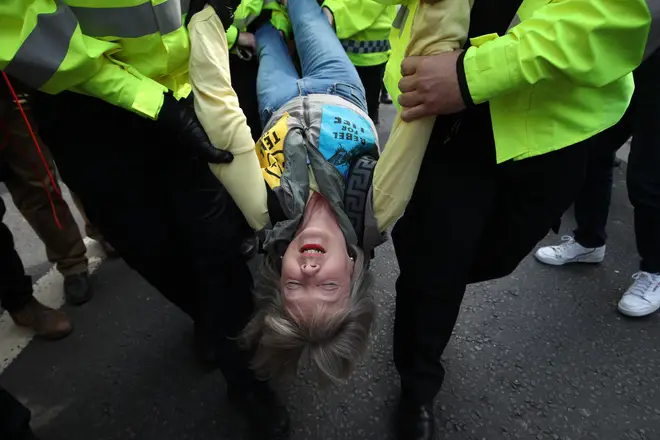
Ian Payne 4am - 7am
18 April 2019, 15:18 | Updated: 18 April 2019, 15:23

The Home Secretary has offered the Metropolitan Police his full support following a meeting with the Met Commissioner to discuss the police response to the demonstrations in central London.
Commissioner Cressida Dick is understood to have told Mr Javid that over 420 Extinction Rebellion protesters had been arrested during the first four days of the climate change protest and more than 1,000 police officers were being deployed daily to police the demos.
Speaking after the briefing, Home Secretary Sajid Javid said: “Everyone has the right to protest peacefully – it’s a cherished, long-standing British tradition and a fundamental cornerstone of the democracy we live in."
The Home Secretary went on to say that commuters trying to earn a living have been unable to travel to work and businesses have been disrupted.
"I expect the police to take a firm stance and use the full force of the law. They have my full backing in doing so. I have spoken to the Met Commissioner today to offer her whatever support she may need and pass on my appreciation to the thousands of officers patrolling the streets of the capital over the Bank Holiday.
“We are a proud democracy – and no one should be allowed to break the law without consequence.”
The Mayor of London Sadiq Khan has said that demonstrations have put added pressure on police officers.
Writing to the Home Secretary he said: "The Met’s ability to police protests without impacting on core policing priorities – such as tackling knife crime – has been made significantly harder by the huge cuts to Government police funding."
In the letter Mr Khan said he was working with the Met to consider applying to a special Home Office fund to compensate for the costs of policing the current protests.
Special grant funding is meant to be used to help pay for policing of special events, so that normal levels of policing are maintained.